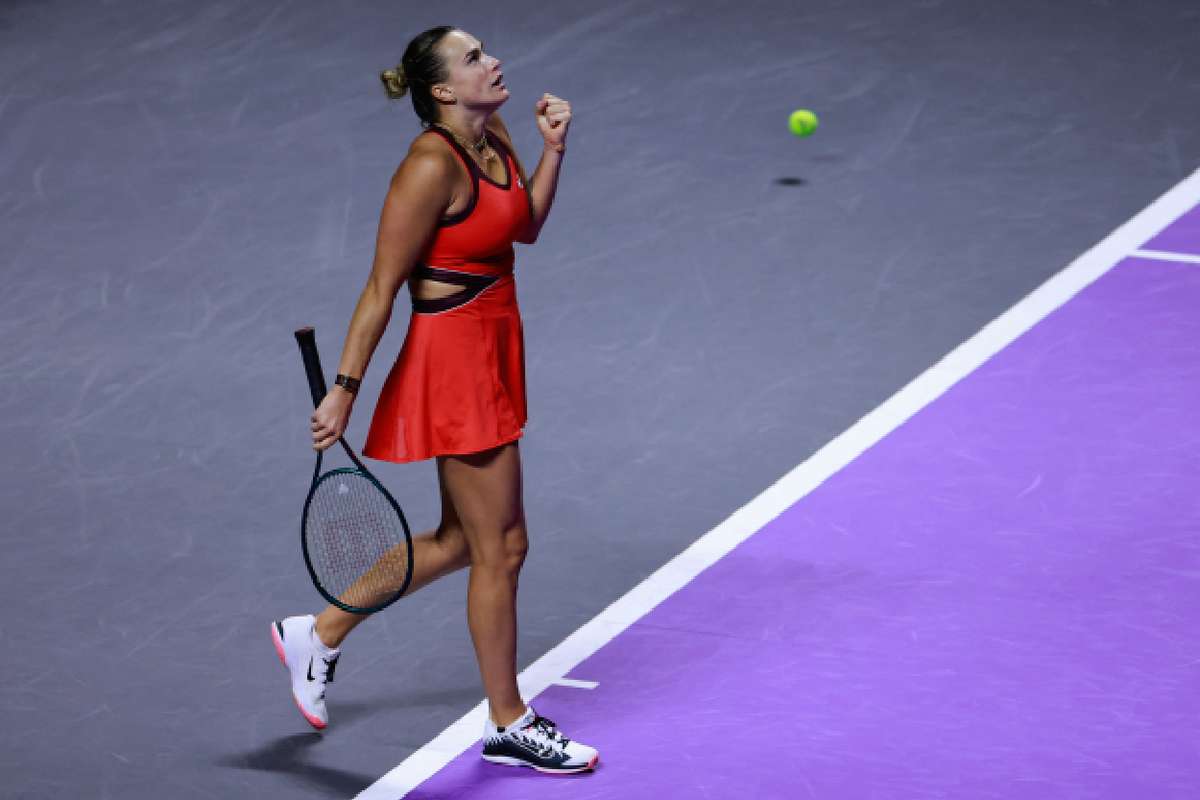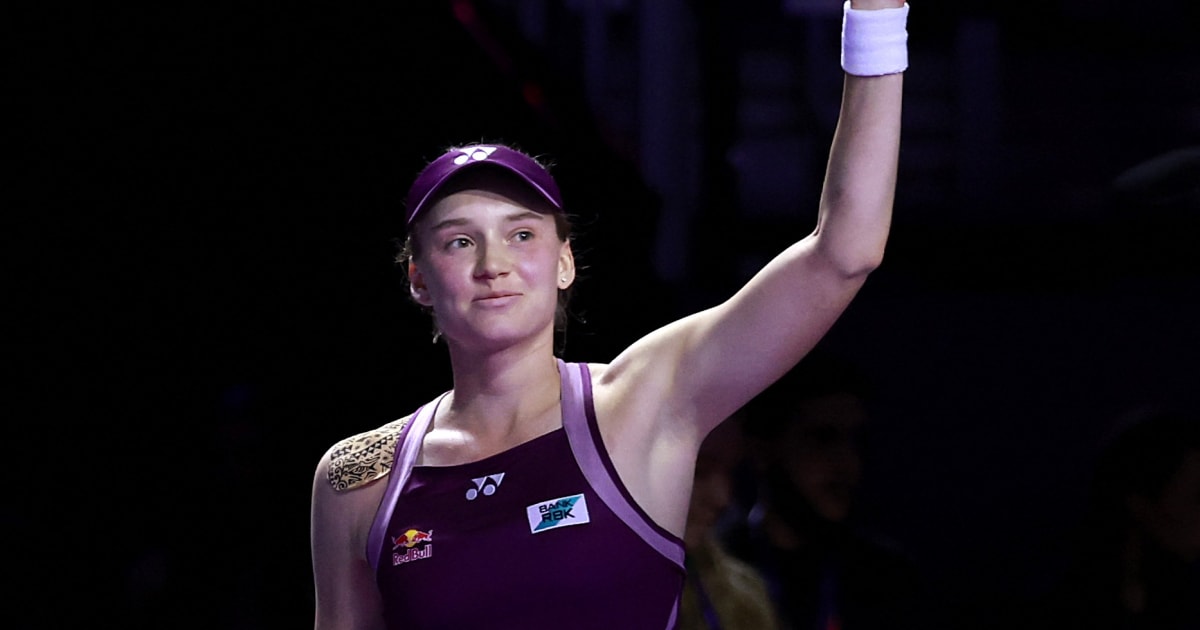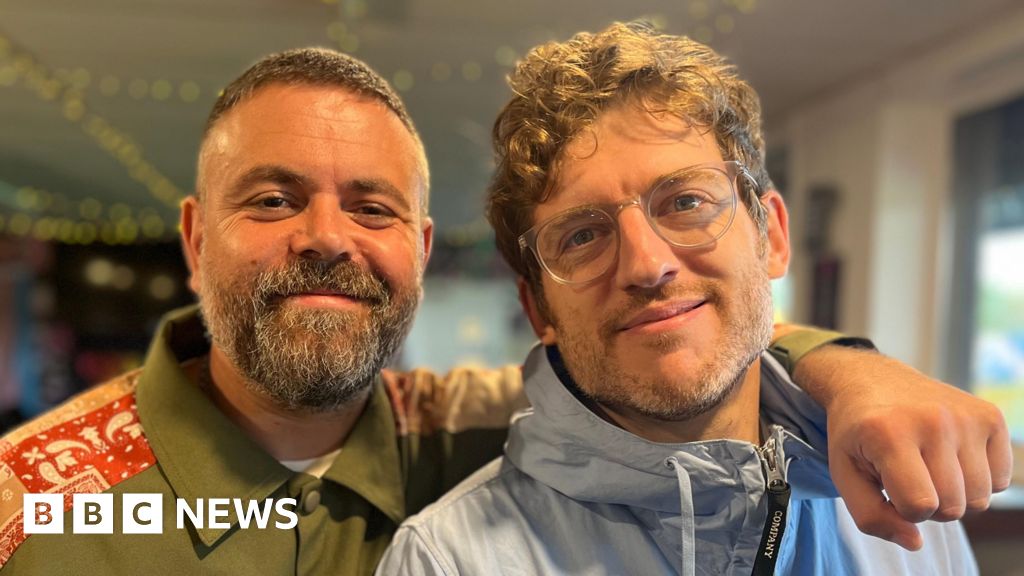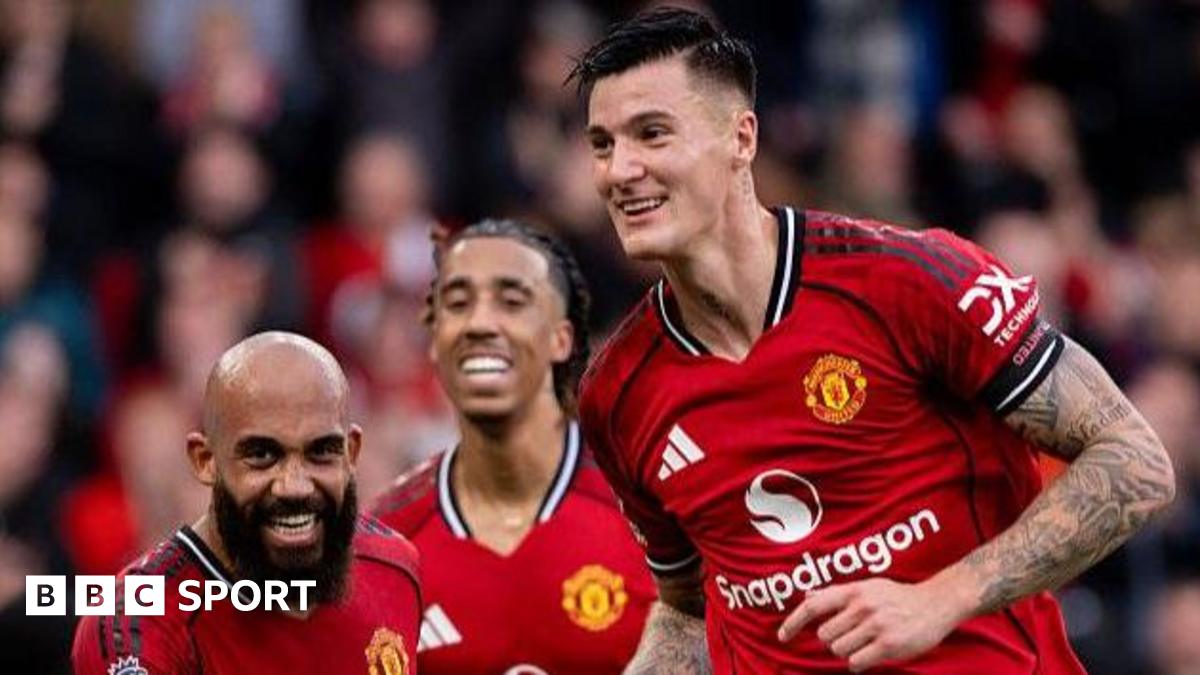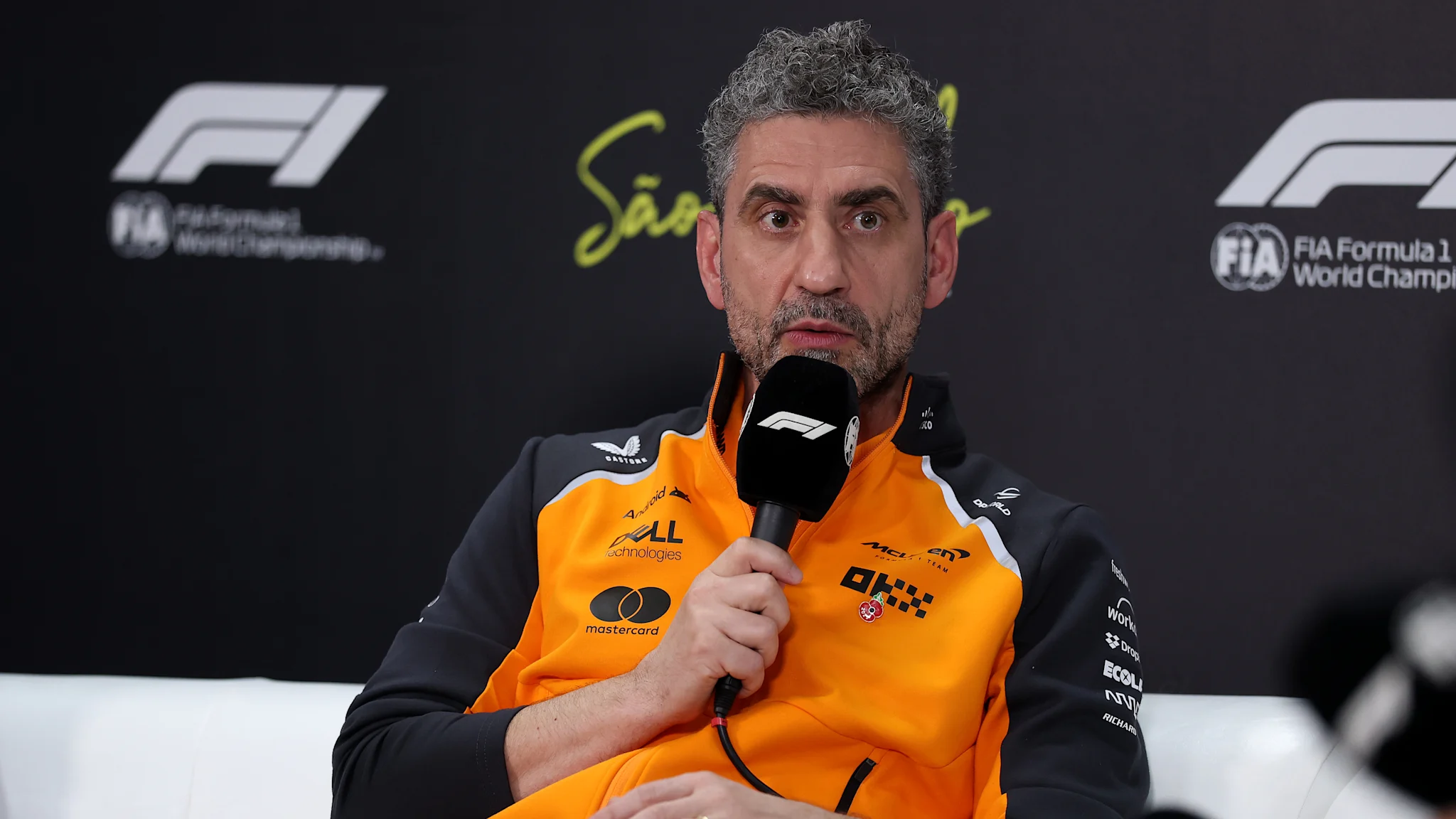Amanda Anisimova’s season through her coach’s eyes
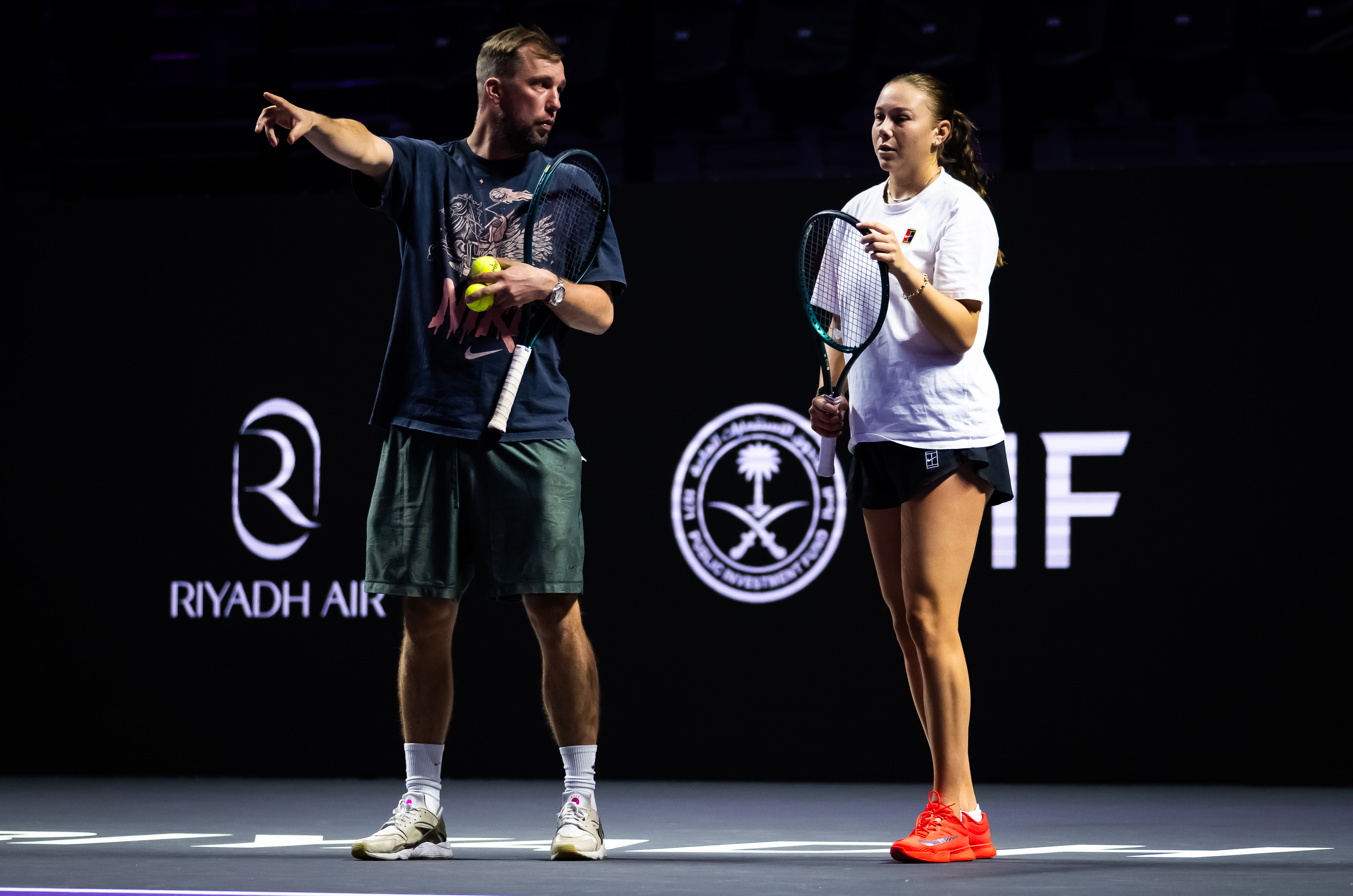
RIYADH, Saudi Arabia -- Hendrik Vleeshouwers walks into the players’ lounge bearded and genial, wearing a khaki Boston Red Sox hat.There’s an unmistakable bounce in the coach’s step, and why not? His player, Amanda Anisimova, is having the season of her life. In her first career trip to the WTA Finals, the No. 4 seed advanced to Friday’s semifinals.The 24-year-old American came back Wednesday night to defeat No. 2 Iga Swiatek for the second time in a row. It’s difficult to put what she’s doing into words, so here are a few numbers to provide some context. This year Anisimova has:· Won 10 matches against Top 10 players, more than she had previously in her entire career.· Won 13 straight three-set matches, all of them at Grand Slams, WTA 1000s or 500s.· Beaten all four reigning Grand Slam champions, something not done in seven years.“There are so many stats out there, but those are good ones,” Vleeshouwers said. “She’s beating strong opponents. I love that data because it’s easy to use when I'm talking to Amanda -- `Look at this.’ ”Vleeshouwers took some time Thursday to sit down with wtatennis.com for a wide-ranging interview:Building the FoundationWell, this must be fun?Vleeshouwers: The whole year has been fun.When did you officially join Amanda’s team?Vleeshouwers: She came back in 2024, and we got together when the grass season started, after Roland Garros. We started first round in qualies of a 250 [the Libema Open in ‘sHertogenbosch] -- and she lost.Initially, what kind of player did you see?Vleeshouwers: When I came on, I saw a lot of raw potential. A lot of work to do, to get that raw potential into a playable form, like a fluid machine. So to go from rawness with great shots to somebody that consistently could play the tennis she is capable of. And it took some time. It took finding some confidence, hard work … but now we are here.She stepped away from tennis in April 2023 and returned in January 2024. She’s talked a lot about how that break helped her mentally. What were some of the on-court things you focused on the most?Vleeshouwers: We worked a lot on the fitness side. To get her more capable of not being afraid to play the rallies, play long matches, to trust her body. And if she trusts her body, she can trust her strokes a bit more. Technically, we worked on the backhand, a bit more on the forehand, the serve, etcetera. But when that was finished, we went over to technical discipline and tactical tweaks.Staying Calm, Playing FreeAfter beating Swiatek Wednesday night, she made a point of mentioning that, despite that frustrating first set, she kept her composure.Vleeshouwers: That’s what we’re trying to achieve, right? To stay calm. My task is to keep telling her that staying calm wins the match. When there’s noise, when she’s reacting, when she’s emotional -- which is going to happen -- it’s inevitable. We’re going to have conflicts, as well. But we need to get better after each one. When she’s composed and she’s ready to play the point, and she can give 100 percent, I mean, that’s the best Amanda we will see.We’ve seen her a lot this year. Talk about her backhand, a shot some people think is the best in the business. Is it?Vleeshouwers: I don’t know if you have sat courtside, but you see the fluidness, it’s the easy power that it generates. It’s not forced -- it’s about timing, natural, plus a bit of instinct. In my opinion, it’s right up there with the best backhands.Lessons from the JourneyIt’s been a season of firsts -- first Top 10, first Top 5, first Grand Slam final(s), first WTA Finals … the way she handled losing the Wimbledon final was most impressive. What was her mindset immediately after and how did she get past that?Vleeshouwers: Obviously, that final was a hard one to swallow. What I do remember right after, from my perspective, I said, `Amanda, I didn’t see Amanda today. It wasn’t you today. We can worry about it a long time, but I’m sure next time it will be different, right?’ She wasn’t herself that day -- it can happen. New experiences can be tough. But there was a little fatigue there, there was Iga playing great, with the right intensity. For me, the way she can be on court -- the fighting, the lifting herself up, the competing -- I didn’t really see that.Her speech afterward, under the circumstances, was surprisingly graceful. People all around the world were touched by the grace she showed in that situation.Vleeshouwers: She can talk pretty well. I think the way she handled that was amazing. We all said that, too, afterward. I mean, only true champions can do it like that. She stole our hearts even more.How did she then turn it around against Swiatek in the US Open quarterfinals?Vleeshouwers: If we played our game in the Wimbledon final, we probably would have been closer. So I told her, `The game plan doesn’t change, this is what you need to do.’ She also looked back at that match back in the hotel before the match with Iga, which I think was pretty rough to do. She did it on her own. And that was a good thing to do.We have certain rituals every match. We talk about the game plan, we talk about herself, we talk about the opponent but the most important thing for us as a team is `Try to play the match on your terms.’ If that happens, chances are bigger we’re going to have success.’What Comes NextWhat specific part of her game has improved the most in the recent months?Vleeshouwers: To put it simply, maybe court awareness. She’s more consistent. More aware of where she is in a match, what is necessary to get success in the match. Or the ability to change because she won a lot of three-set matches as well. And that’s a big thing, right? You can lose all those matches in three sets. So, adaptation skills also.Before the tournament, I asked her if she was surprised by her performance this year. She said yes. Last night I asked if she was surprised by the result over Iga. She said, `I’ve proved I belong with these great players.’ As a coach, how happy does it make you to hear that?Vleeshouwers: Playing on our terms, right? One thing we also do as a team is telling her she’s the best. That perspective is a great one to have. If she believes and keeps believing in herself, I think that’s a superpower.What does she need to do to take that last step and win a Grand Slam?Vleeshouwers: I’ve said to her, `You’ve had so many new experiences this year. If you lose a match or something didn’t go the way it should have, we can only use that as a lesson for what happens next.’ Imagine she gets to the same areas somehow, and then we can easily look back at this year and use the data to do better.Where does she have the most room to improve?

